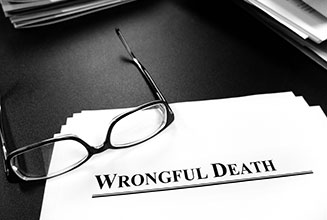After a tragic loss, picking up the pieces and seeking justice is imperative for those left behind. Wrongful death lawsuits provide legal avenues for holding responsible parties accountable when negligence leads to fatal accidents. In Florida, specific rules govern who can file a wrongful death lawsuit, ensuring that the rights of the deceased loved ones are upheld and supported with care. This blog delves into the specifics of Florida's wrongful death laws, addressing common questions and shedding light on who has the right to pursue legal action.
FAQ: Wrongful Death Lawsuits in Florida
Can a spouse file a wrongful death lawsuit?
Under Florida law, a surviving spouse has complete standing to file a wrongful death lawsuit. Includes both current spouses and those legally married at the time of the deceased person's passing. A spouse can seek compensation for various damages, including loss of companionship, emotional distress, and financial losses resulting from the death.
Can a child file for wrongful death?
Florida law allows surviving children of the deceased to file a wrongful death lawsuit. It encompasses both minor and adult children. If the deceased individual had no spouse, children get priority when initiating legal action. Children can pursue damages for emotional trauma, loss of guidance, and financial support.
Can a sibling file a wrongful death lawsuit?
In Florida, siblings generally do not have the legal standing to initiate a wrongful death lawsuit. The right to file is primarily granted to spouses and children. However, if there are no surviving spouses or children, the deceased person's parents might have the right to file a lawsuit. Siblings, unfortunately, are not granted this right under the state's law.
Can a friend file for wrongful death?
In Florida, friends of the deceased do not typically have the legal standing to file a wrongful death lawsuit. The law prioritizes the rights of immediate family members, such as spouses and children, and sometimes parents. While deeply affected by the loss, friends are generally not considered eligible to initiate legal proceedings without closer family relations.
Unpacking Florida's Wrongful Death Laws: Key Considerations
- Statute of Limitations: Florida does have a statute of limitations specific to filing a wrongful death lawsuit. Generally, it is initiated within two years from the deceased person's death date. Please file within this timeframe to avoid the case being dismissed, underscoring the importance of prompt legal action.
- Damages Recoverable: Under Florida law, damages recoverable in these types of lawsuits can include medical and funeral expenses, loss of financial support, loss of companionship, and mental anguish. The damages available may vary depending on the relationship between the deceased person and the claimant.
- Shared Fault: Florida operates under a comparative fault system. If the deceased person's actions contributed to their death, the damages awarded could be reduced by the percentage of fault assigned to them. This aspect is crucial to consider when evaluating the potential outcome of a wrongful death lawsuit.
- Executor's Role: An Executor's role is someone appointed to manage the deceased person's estate. This individual serves as the representative for the estate and initiates legal proceedings on behalf of the surviving family members.
- Survival Action vs. Wrongful Death Action: In Florida, a survival action and a wrongful death action are distinct legal concepts. A survival action allows the estate to pursue a claim for damages to which the deceased person would have been entitled if they had survived the accident. On the other hand, a wrongful death action focuses on the losses suffered by the surviving family members.
Filing a wrongful death lawsuit in Florida requires a clear understanding of who has the legal standing to file. Spouses and children hold primary rights to initiate legal action. Siblings and other family members may have limitations in this regard. Florida's wrongful death laws encompass various factors, including the statute of limitations, shared fault considerations, and the role of the estate's executor.
By grasping these essential elements, those seeking justice for losing a loved one can better navigate the legal landscape and work towards achieving closure and accountability.
If you require an experienced attorney to help you in times of struggle due to a Wrongful Death Incident, contact your trusted, knowledgeable, and passionate attorneys at The Coker Law Firm.




